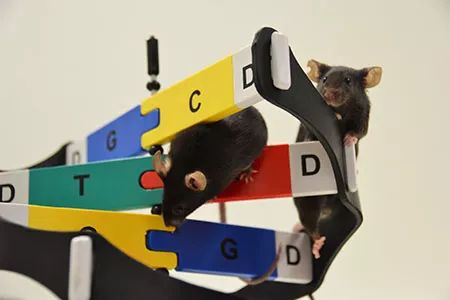Mouse Deer as a Pet: A Guide to Owning These Endearing Creatures
Guide or Summary:Initial AcquisitionHabitatDietHealth and CareBehavior and SocializationMouse Deer, also known as Bambuseta, are fascinating creatures that……
Guide or Summary:
Mouse Deer, also known as Bambuseta, are fascinating creatures that capture the heart of anyone who encounters them. With their tiny stature, soft fur, and gentle demeanor, it's no wonder that some enthusiasts are considering them as potential pets. In this guide, we'll explore the intricacies of owning a mouse deer as a pet, covering everything from their care requirements to the unique challenges they present.
Initial Acquisition
The journey of owning a mouse deer begins with the initial acquisition. These small mammals are typically found in Southeast Asia, where they inhabit dense forests and bamboo groves. Purchasing a mouse deer from a reputable breeder or rescue organization is crucial. It's essential to ensure that the breeder follows ethical practices, providing the animals with proper care and living conditions. Additionally, it's important to consider the legality of owning a mouse deer in your region, as some countries have specific regulations regarding exotic pets.

Habitat
Once you've acquired your mouse deer, setting up a suitable habitat is paramount. These creatures require a spacious enclosure that mimics their natural environment. A combination of hardwood and bamboo substrates can create a comfortable and stimulating environment. It's essential to provide ample hiding spots, climbing structures, and enrichment toys to keep your mouse deer mentally and physically engaged.
Diet
A balanced diet is crucial for the health and well-being of your mouse deer. Their diet should consist mainly of fresh vegetables, fruits, and grasses. It's recommended to provide a variety of leafy greens, such as kale, spinach, and romaine lettuce, as well as a selection of fruits like apples, bananas, and strawberries. Additionally, a small amount of high-quality commercial mouse deer food can supplement their diet, providing essential nutrients and vitamins.

Health and Care
Regular veterinary check-ups are essential for maintaining the health of your mouse deer. These small mammals are susceptible to certain health issues, including dental problems and respiratory infections. It's crucial to monitor their dental health by providing chewable toys and regularly checking for signs of dental disease. Additionally, maintaining a clean living environment and providing fresh water at all times are essential for preventing illness and promoting overall health.
Behavior and Socialization
Mouse deer are naturally shy and require gentle handling and socialization to become comfortable around humans. It's important to approach them with patience and care, allowing them to become accustomed to your presence at their own pace. Socializing with other mouse deer can also be beneficial, as they are naturally social creatures. However, it's essential to introduce them carefully and ensure that they are well-matched in terms of temperament and behavior.

Owning a mouse deer as a pet is a rewarding experience for those who are prepared to provide the necessary care and attention. From setting up a suitable habitat and providing a balanced diet to ensuring their health and well-being, there are several factors to consider. With proper care and socialization, a mouse deer can become a beloved companion, bringing joy and companionship to their human family. However, it's important to approach the decision to own a mouse deer with careful consideration, ensuring that you are prepared to provide the best possible care for these endearing creatures.